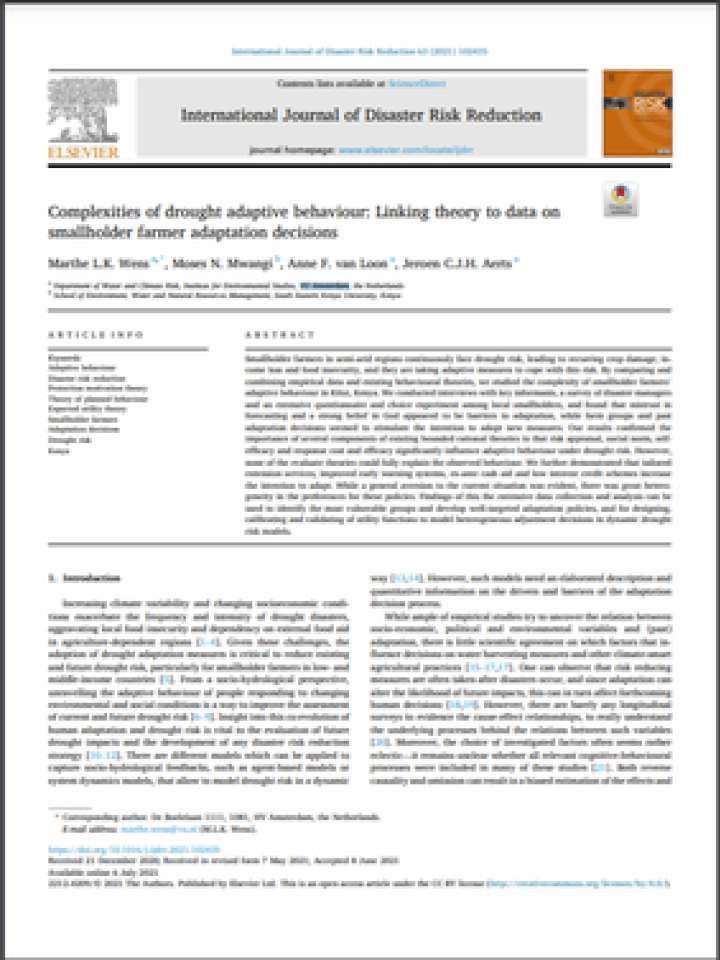Complexities of drought adaptive behaviour: Linking theory to data on smallholder farmer adaptation decisions
By comparing and combining empirical data and existing behavioural theories, the authors studied the complexity of smallholder farmers' adaptive behaviour in Kitui, Kenya. Smallholder farmers in semi-arid regions continuously face drought risk, leading to recurring crop damage, income loss and food insecurity, and they are taking adaptive measures to cope with this risk. The authors conducted interviews with key informants, a survey of disaster managers and an extensive questionnaire and choice experiment among local smallholders, and found that mistrust in forecasting and a strong belief in God appeared to be barriers to adaptation, while farm groups and past adaptation decisions seemed to stimulate the intention to adopt new measures.
The results confirmed the importance of several components of existing bounded rational theories in that risk appraisal, social norm, self-efficacy and response cost and efficacy significantly influence adaptive behaviour under drought risk. However, none of the evaluate theories could fully explain the observed behaviour. The authors further demonstrated that tailored extension services, improved early warning systems, ex-ante cash aid and low interest credit schemes increase the intention to adapt. While a general aversion to the current situation was evident, there was great heterogeneity in the preferences for these policies. Findings of this the extensive data collection and analysis can be used to identify the most vulnerable groups and develop well-targeted adaptation policies, and for designing, calibrating and validating of utility functions to model heterogeneous adjustment decisions in dynamic drought risk models.
Explore further
